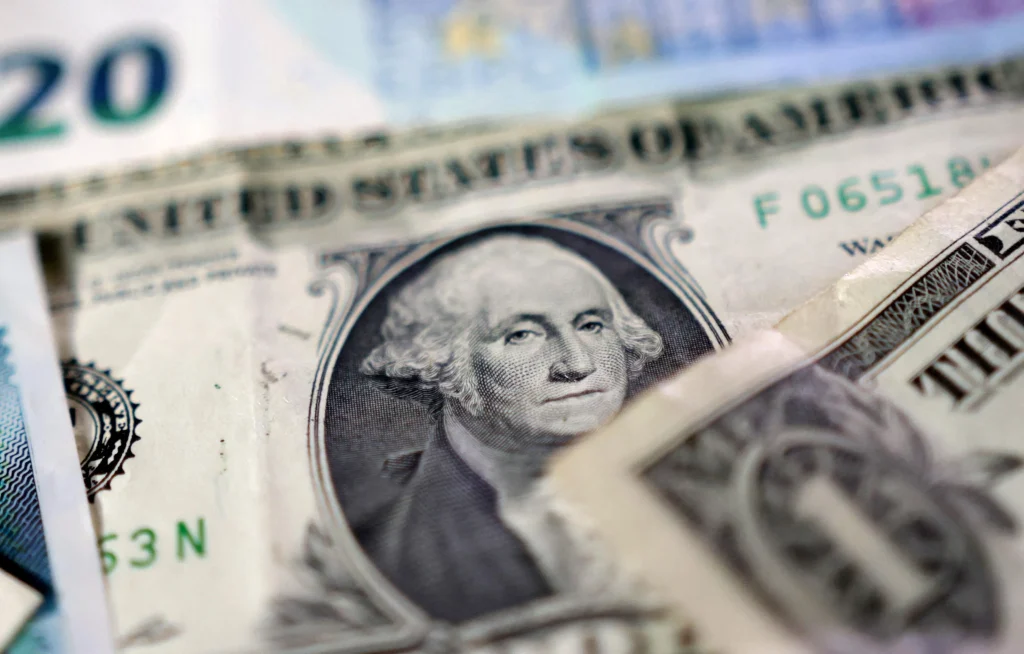[LONDON] US President Donald Trump thinks America is only for Americans. The US dollar, by contrast, is for everyone. Should the Brics grouping of emerging economies create a new currency, Trump has tweeted, or “back any other currency to replace the mighty US dollar”, they will face 100 per cent tariffs.
The chairman of Trump’s Council of Economic Advisers, Stephen Miran, disagrees. On Apr 7, he told the Hudson Institute that the global use of the dollar has “caused persistent currency distortions and contributed, along with other countries’ unfair barriers to trade, to unsustainable trade deficits”.
Miran is not the only Maga (“Make America Great Again”) economist to hold that view. Michael Pettis, not of the administration but influential within it, recently wrote a commentary in the Financial Times titled The US would be better off without the global dollar.
Almost every government issues currency to help pay its bills. Locals accept pieces of paper in exchange for goods and services. Economists call this fragile arrangement “seigniorage”. When people lose faith in the local currency and try to dump it – as has happened in countries from Argentina and Venezuela to Sudan and Zimbabwe – consumer prices skyrocket.
BT in your inbox

Start and end each day with the latest news stories and analyses delivered straight to your inbox.
The US is unique in that people everywhere wish to hold greenbacks, so it collects seigniorage on the whole world. The Federal Reserve estimates that foreigners hold more than US$1 trillion, or 45 per cent of the total currency in circulation. This is a source of cheap funding for the US.
Imagine an American abroad who pays for a hotel room with dollars. A year later the foreign hotelier uses those dollars to fund his own visit to America. If US prices rise during that year, this amounts to a loan with a negative interest rate Americans get from the rest of the world.
That is not the only way the US obtains funds on the cheap. All over the world, American bonds – and especially the Treasury bills issued by the US government – are used as collateral in financial transactions. Because of this convenience, foreigners are willing to hold Treasuries even if the interest rate is lower than that of other government bonds of equivalent risk and maturity (economists call this gap the convenience yield).
At the end of 2024, foreigners held nearly US$8.6 trillion in US federal debt. If its role as collateral means the interest rate on US debt is 0.5 per cent lower than it would have been otherwise, Americans are saving US$43 billion a year. And there is more: if the convenience yield drives the interest rate on Treasuries below the economy’s growth rate, then the US enjoys a free lunch: it can issue government debt without ever having to repay it.
Before speaking to the Hudson Institute, Miran acknowledged that “demand for dollars has kept our borrowing rates low”, and then proceeded to ignore this crucial fact in the rest of his speech. Nor did he consider another advantage of the global dollar: when the US gets into trouble (for instance, after the Vietnam War, or in the tumultuous weeks following Trump’s Apr 2 declaration of a tariff war), the dollar’s value declines, and so does the burden of the dollar debts it owes to the rest of the world. Other countries that borrow in their own currency must pay an interest rate that compensates for this devaluation risk. The US does not.
Is America’s gain the world’s loss? Not quite. People around the world benefit from having safe, dollar-denominated assets in which to save and invest. No other economy can provide the same service today.
Europe is the obvious alternative, but its capital market is far more fragmented than that of the US, since only in the last few years has the European Union (as opposed to individual member states) begun to issue debt instruments. China also has a large economy, but its authoritarian political system and widespread capital controls mean that the world is not lining up to hold renminbi-denominated assets.
The dollar is a global currency because American policies and institutions have historically been more reliable than those of most other countries. If Maga economists think this is a problem, then their boss has a ready-made solution. By imposing tariffs that violate international treaties, speculating about the invasion of allies like Canada and Denmark (to take over Greenland), ignoring court rulings and threatening to seek a constitutionally prohibited third term, Trump is making the US more like weak-currency, high-inflation countries.
The world’s reaction to Trump’s “Liberation Day” tariffs was unambiguous: the dollar lost nearly 7 per cent of its value against the euro while the yield on ten-year Treasuries rose by almost half a percentage point. The currencies of emerging and developing countries also plunged, because higher tariffs and a slowing world economy dim their growth prospects.
It is not easy to devise a policy that hurts almost everyone, but Maga economists have managed this feat. If the global dollar goes down the drain as a result, it will have many mourners. PROJECT SYNDICATE
The writer, a former finance minister of Chile, is dean of the School of Public Policy at the London School of Economics and Political Science


